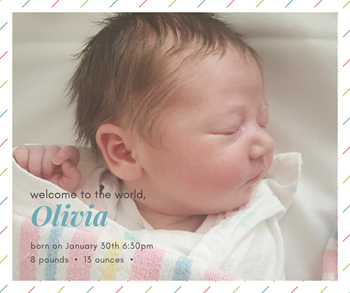ITS A GIRL!
Dr Jeremy and his wife Rachael welcomed a baby girl to their family on January 30th 2018. Bouncing baby Olivia weighed in at 8 pounds and 13 ounces. She is settling into her new routine and mum, dad and bub doing well.
Dry Eyes
Dry eye is a painful and potentially dangerous condition caused by not enough tears being produced. The eyes of affected animals, including the outer covering of their eyeballs (the cornea) and the lining of their eyelids (the conjunctiva) become very dry, rough, red, inflamed, sensitive and fragile.
Dogs with dry eye have varying degrees of discomfort, ranging from mild to extremely severe. Their eyes always are irritated, scratchy and red. In most cases, they probably also are itchy and painful. If dry eye is left untreated, it worsens over time and the cornea can ulcerate. If your dog is suffering from any of the signs below please contact the clinic immediately on 9707-3855.
Symptoms of Dry Eye
Pawing or rubbing at the eyes
Eye redness
Eyes look Dull, dry, non shiney in appearance
Discharge green or yellow thick or crusty
Third eyelid protruding/ cherry eye
Sensitivity to light
Swollen, inflamed eyelids
Squinting or excessive blinking
Impaired vision/ Blindness
Dry eye can occur in any dog, at any age, but certain breeds are thought to be predisposed to developing dry eye. These breeds are:
West Highland Terrier, Cocker Spaniel, English Bulldog, Bull Terrier, Pug, Miniature Schnauzer, Boston Terrier, Dachshund, German Shepherd, English Springer Spaniel, and Shih-Tzu.
Sun screen for pets
Does your pet need to slip, slop, slap?
The answer to this question is not so simple and it depends on many factors.
You should be applying sunscreen to your pet if:
they have a light coloured coat or very fine/ thin fur
The pet is a sunbaker and lays in the sun for extended periods of time
Has exposed or pink skin on the nose, tips of the ears or the stomach
Only ever apply a pet approved sunscreen to your canine or feline friend. Any sunscreen that contains zinc oxide can be potentially harmful to pets if ingested as they groom. Products containing salicylates can also cause problems in cats so it’s always important to read the ingredient list. Many dog sunscreens contain insect repellants such as Pyrethrin which is toxic in cats if ingested.
The best protection from sunburn is to avoid having your pet out of the direct sun especially between 10am – 2pm when UV is at its strongest. Provide shaded areas or keep pets inside. Sunburn can occur through windows/glass, for those cats that sunbake in the window.
If you require sunscreen for your pet or any further information please contact the clinic on 9707 3855.
Cash Back
For the month of February Advocate is offering a $25 cash back on 6 month flea treatment purchased in clinic. Come in today to get your savings!


Recent Comments